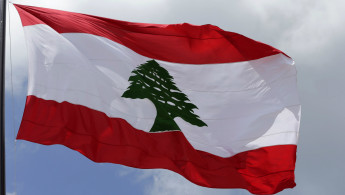Senior adviser Nadim Munla said Hariri had begun a series of meetings with key ambassadors in Beirut, six days into a mass anti-government protest movement, which has drawn muted reactions from Lebanon's top foreign allies.
"We believe, after the announcement of the decisions of the cabinet yesterday, that we're going to get very positive reactions from them," Munla told reporters.
"This has been the main demand by most of the members of the international community," he added.
On Monday, Hariri announced that his fractious cabinet had agreed on wide-ranging economic measures, including a 2020 budget and a number of key reforms.
Elements of the reforms had been blocked by some of Hariri's governing partners, but Munla said pressure from the unprecedented protests had helped push them through.
The reform package includes a privatisation programme and debt reduction drive that aim to reassure donors and allow for the disbursement of a huge aid package approved in Paris last year.
Munla also said he hoped the package announced Monday would "lead to some positive reactions on the market", ratings agencies having graded Lebanese sovereign bonds as "junk".
The reforms also included a series of measures designed to fight rampant corruption, one of the main grievances of the hundreds of thousands of people demonstrating since last week.
But the protesters dismissed the new measures as insufficient and a desperate move by the political class to save their jobs.
Munla said a new anti-graft law was being drafted and that suggestions made by civil society would be included in the bill.
"The pressure that has been manifested over the last days and possibly weeks, personally, I believe it's irreversible and it's going to lead to very concrete laws," he said.
President Michel Aoun has said that he was in favour of lifting banking secrecy on the accounts of ministers.
"I think they (ministers) are going to respond, what I have seen, is that there is a movement in that direction," Munla said.
He added that a cabinet reshuffle was not ruled out, saying,"I think this will be determined in the coming few days. It is one of the options."
Follow us on Twitter: @The_NewArab





 Follow the Middle East's top stories in English at The New Arab on Google News
Follow the Middle East's top stories in English at The New Arab on Google News
![The UAE is widely suspected of arming the RSF militia [Getty]](/sites/default/files/styles/image_330x185/public/2024-11/GettyImages-472529908.jpg?h=69f2b9d0&itok=Yauw3YTG)
![Netanyahu furiously denounced the ICC [Getty]](/sites/default/files/styles/image_330x185/public/2024-11/GettyImages-2169352575.jpg?h=199d8c1f&itok=-vRiruf5)
![Both Hamas and the Palestinian Authority welcomed the ICC arrest warrants [Getty]](/sites/default/files/styles/image_330x185/public/2024-11/GettyImages-2178351173.jpg?h=199d8c1f&itok=TV858iVg)